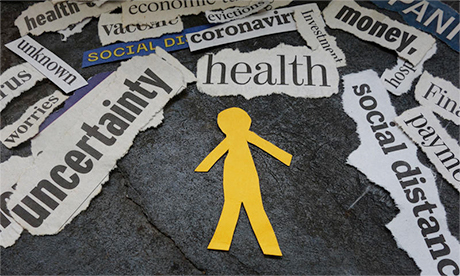I spent the early months of the coronavirus pandemic feeling desperately claustrophobic.
Quarantined in a one-bedroom apartment in New York, I would sometimes imagine my fire escape was a creaky porch in the woods somewhere as I sat outside in the early evenings, listening to my neighbours’ cheer and bang pots for the essential workers carrying the city on their backs.
Life felt stuck: no way to plan, nowhere to go, nothing to build toward.
The calendar had been emptied of weddings and dinners and reunions; the comforting rhythms of weeks and seasons disappeared.
I found myself alternately plotting wild adventures and pining for a quiet, communal life.
A professor of mine used to call this kind of musing “Jesuit daydreaming,” his description of the rich Ignatian tradition of spiritual discernment.
I should pay attention to daydreams, he said, because they can be more revealing than I might first assume.
In this case, I think he is right: My pandemic mind loop was tracing the problem I have come to see as one of the great dilemmas of modern life.
In my work as a religion journalist, I often offer a mental image to explain the importance of the beat to secular colleagues and readers.
While not everyone describes themselves as having faith or even feeling spiritual, everyone has those searching moments in the middle of the night, covers pulled up high as they are lying in bed wondering how to have a good life.
More often than not, people’s descriptions of what a good life looks like depends on a single factor: the strength of the community around them.
As a reporter, it is my job to follow along as individuals and communities try to figure out who they want to be and how they want to live.
It is hard to be a man or woman for others in a culture that is dominated by us versus them.
Over the past eight months, however, the path toward a good life has become obscured for many Americans.
As I sat inside my apartment daydreaming about the future, dozens of people
- on my street were getting sick,
- were losing family members or navigating the anxiety of being immunocompromised during a public-health crisis,
- were among many Americans, especially in New York, have spent their last eight months mostly alone, and mostly at home, sometimes unable even to wave hello to loved ones from a distance.
- contributed to the unemployment rate in New York City, which this summer reached 20 percent; many beloved businesses will likely never come back after the shutdown.
- are impacted by the basic ingredients of a good life—decent health, the warmth of family and friends, economic stability—are now out of reach for far more people in our country than at the start of 2020.
But the pandemic has also revealed the extent to which a good life felt elusive for countless Americans far before any of us had heard of Covid-19.
This is not just a matter of money or resources.
In my reporting, I constantly find evidence that Americans feel isolated and unmoored from their communities, unsure of their place in the world.
I am thinking of a Black Southern Baptist–trained pastor who could not stomach taking his kids to church within his denomination anymore because of his fellow church members’ reluctance to talk about racism.
A longtime staffer at a major American archdiocese who feels daily rage at the Catholic Church’s inability to address the clergy sexual-abuse crisis.
A young woman fired from her job at a conservative Christian advocacy organization because she spoke out against President Trump. A Catholic professor who bitterly wishes the Democratic Party had room for his pro-life views.
These are all examples from the world of religion and politics, but they speak to a deep and expansive truth: In many parts of American life, people feel the institutions that were supposed to guide their lives have failed, and that there is no space for people like them.
The result is a widespread sense of mutual mistrust.
Last year, the Pew Research Center found that fewer than one in five Americans say they can trust the government.
Nearly two-thirds of Americans have a hard time telling the truth from lies when elected officials speak, and even more believe the government unnecessarily withholds important information from the public.
I have encountered plenty of mistrust in the course of reporting stories.
People believe they know my politics, suspect me of bias and assume I will be hostile to religion because of where I work.
Religious leaders may be the most distrusted group of all.
As one influential Catholic businessman in Boston told me a couple of years ago, following the sexual-abuse scandal, “I go to Mass about three or four days a week.
I’m not into Vatican politics. I’m not into Vatican museums. I’m not into people who wear red slippers and fancy robes.
I bought into this as a kid, because of the life of Christ. So I’m in. But I’m not drinking any Kool-Aid.”
Nearly two-thirds of Americans have a hard time telling truth from lies when elected officials speak. Continue reading
